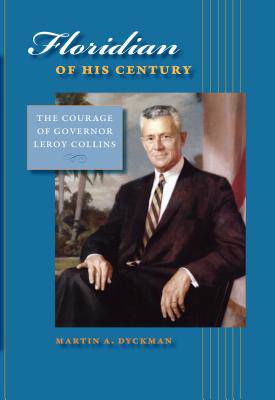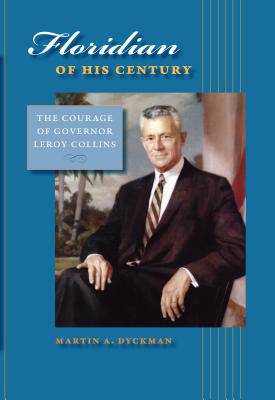
- Retrait gratuit dans votre magasin Club
- 7.000.000 titres dans notre catalogue
- Payer en toute sécurité
- Toujours un magasin près de chez vous
- Retrait gratuit dans votre magasin Club
- 7.000.000 titres dans notre catalogue
- Payer en toute sécurité
- Toujours un magasin près de chez vous
Récompenses
Description
In this portrait of a man the Florida House of Representatives eulogized as the "Floridian of the Twentieth Century," Dyckman argues that the courageous moral leadership of LeRoy Collins not only spared Florida the humiliation that befell other southern states under less enlightened leaders but also was responsible for modernizing all the branches of the state government. Collins was elected governor as a segregationist but recognized in office that he could not reconcile segregation with his religious faith or his sworn duty to represent all the citizens of Florida. He announced that racial discrimination was contrary to "moral, simple justice." Collins won the two most important elections for governor in his state's history--as the champion of urban Florida against rural misrule in the special election of 1954 and as the voice of racial moderation in 1956, when his home-state rivals and many Southern peers were preaching defiance of the U.S. Supreme Court's desegregation decisions. Collins fought what he thought were losing battles for a modern constitution and fair apportionment of the state legislature but saw these succeed not long after he had left office largely because of his efforts. As president of the National Association of Broadcasters, Collins shocked his employers by denouncing tobacco advertising aimed at children. Chosen by President Lyndon Johnson to direct a conciliation service created by the 1964 Civil Rights Act, Collins arranged a peaceful conclusion to the famous Selma to Montgomery voting rights march. But his mission became fuel for a racist backlash when "Liberal LeRoy"--as his opponent dubbed him--ran for the U.S. Senate in 1968, and the defeat ended his political career. This is the first comprehensive biography of the life and influence of LeRoy Collins since his death in 1991. It is not merely a political history but also the inspirational story of an American patriot who in his own words regarded the opportunity to help citizens as the glory of government.
Spécifications
Parties prenantes
- Auteur(s) :
- Editeur:
Contenu
- Nombre de pages :
- 352
- Langue:
- Anglais
- Collection :
Caractéristiques
- EAN:
- 9780813029696
- Date de parution :
- 31-08-06
- Format:
- Livre relié
- Format numérique:
- Genaaid
- Dimensions :
- 162 mm x 228 mm
- Poids :
- 662 g









